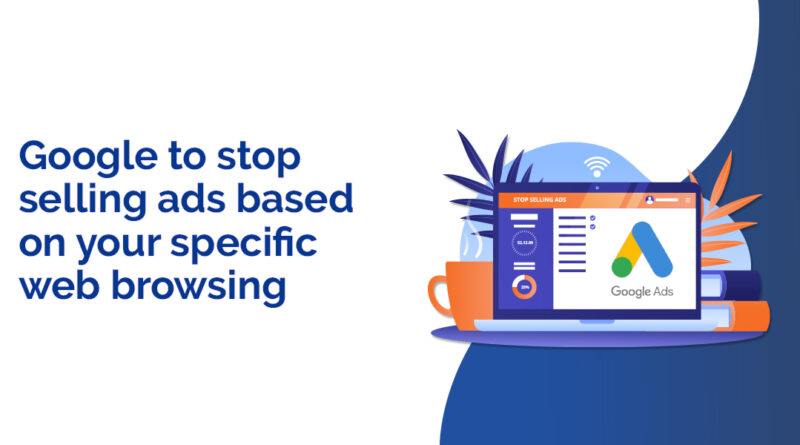Google to Stop Selling Ads Based on Your Specific Web Browsing
Google on 3rd March 2021 said it will quit selling promotions dependent on an individual perusing across sites, a move that could stir up the advanced publicizing industry as buyers call for more protection on the web.
A year ago, the pursuit monster said it will eliminate outsider treats, small amounts of code that can allow publicists to follow client history across the web. When those are gone from Googles’ Chrome program one year from now, the organization clarified that it will not utilize or put resources into following elective tech that could recognize individuals at an individual level.
“On the off chance that advanced promoting doesn’t advance to address the developing concerns individuals have about their security and how their own character is being utilized, we hazard the fate of the free and open web,” David Temkin, a Google item chief lacking protection, said in a blog entry. “Individuals shouldn’t need to acknowledge being followed across the web to get the advantages of applicable publicizing.”
The declaration came as Google’s hunt and focused on promoting business is under expanding assault by administrators just as state and government investigators. The tech monster faces three significant antitrust claims, including a milestone case by the US Department of Justice and another objection by a states’ dual-party alliance.
Wednesday’s declaration is essential for the pursuit giant’s push toward a “protection sandbox,” which is intended to allow distributors to target promotions dependent on individuals’ inclinations without encroaching on their security. The organization has promoted achievements in AI like “unified realizing,” which depends on Google’s frameworks getting more intelligent by utilizing crude information on individuals’ gadgets, rather than moving it to the cloud, so Google doesn’t really see the data, yet at the same time gains from it.
Google’s statement to not utilize following elective advances makes certain to unsettle others in the promotion tech industry who intend to supplant outsider treats with another programming that can carefully follow people, similar to one strategy that uses individuals’ email addresses.
“We don’t really accept that these arrangements will meet rising purchaser assumptions for security, nor will they face quickly developing administrative limitations, and subsequently are certainly not an economical long haul venture,” Temkin said.
Constraints to Google Update?
In any case, there are constraints to Google’s update. The progressions will not have any significant bearing on “first gathering” information, which organizations gather straightforwardly from buyers. That incorporates Google’s own items, like Gmail, YouTube, and Chrome. Likewise, the progressions will apply to sites and not cell phones, where shoppers are progressively investing their energy.
In the course of recent years, the tech business has been compelled to advance toward security as purchasers and officials have raised worries over maltreatments of client information. Since December, Apple has required application engineers on its iOS stage to give “sustenance marks” that mention to individuals what individual information their applications are gathering, as monetary data, contacts, or scanning history. Google, be that as it may, hasn’t given marks to the majority of its applications.
Another change by Apple, turning out in the coming months, expects designers to request that individuals for authorization accumulate information and track them across applications and sites. The change has provoked Facebook, provoking a battle of words between CEO Mark Zuckerberg and Apple CEO Tim Cook. Google, then, is purportedly considering a less “tough” way to deal with giving clients alternatives about application following in its Android working framework.
Let see what the revolution is about to hit the IT industry with this Googles’ new policy.



